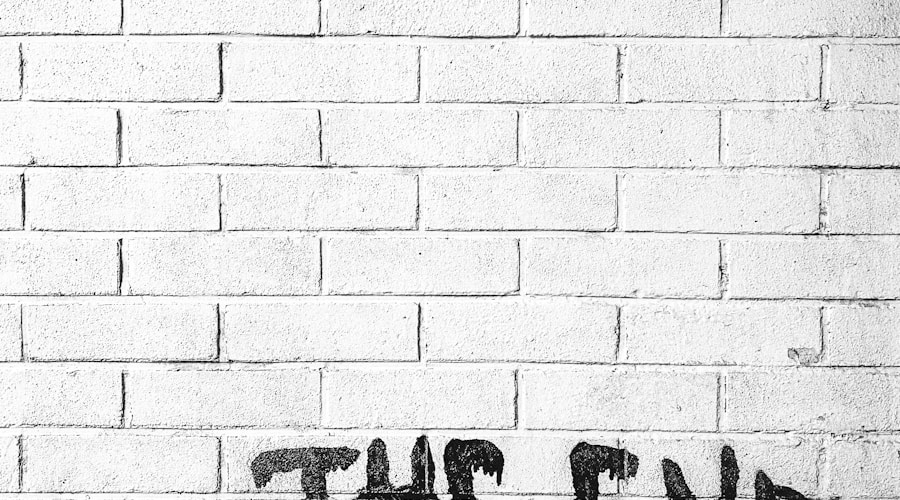Do you ever find yourself constantly seeking validation from others? From the clothes you wear to the decisions you make, the need for social validation is deeply ingrained in human psychology. This article will delve into the reasons behind our constant quest for approval and recognition from others. Understanding the role of social validation in our lives can provide valuable insights into our social nature and behavior.
Seeking approval from others is a fundamental aspect of human behavior. As social beings, we rely on the opinions and feedback of others to shape our own beliefs and actions. Whether it's the number of likes on a social media post or the praise from a colleague, the need for validation drives much of our daily interactions.
In this article, we will explore the impact of social validation on our behavior and decision-making processes. From the rise of social media to the effects of seeking constant approval, we will examine the positive and negative consequences of our incessant need for recognition.
Furthermore, we will discuss ways to overcome the need for constant validation and build inner confidence without relying on outside approval. By understanding the underlying psychology of social validation, you can gain valuable insights into your own behavior and take proactive steps towards achieving a healthier sense of self-worth.
Get ready to explore the fascinating world of human psychology and the quest for social validation. It's time to delve deeper into our inherent need for approval and recognition in the ever-evolving landscape of social interactions. So, let's embark on this insightful journey together and discover the underlying reasons behind our constant quest for validation.
Understanding Our Social Nature
Did you know that as human beings, we are inherently social creatures? The need for social validation stems from our natural inclination to seek connection with others. Psychologists believe that our desire for approval and acceptance is deeply ingrained in our evolutionary history. In fact, according to psychologist Susan Krauss Whitbourne, "One of the most powerful predictors of happiness is the strength of a person's social connections."
We are wired to form relationships and bonds with others, as these connections are essential for our emotional well-being. As social animals, we thrive on positive interactions, support, and validation from the people around us. When we receive social validation, it reaffirms our sense of belonging and reinforces our self-worth. In the words of renowned researcher Brené Brown, "Connection is why we're here; it is what gives purpose and meaning to our lives."
It is crucial to recognize that our social nature plays a significant role in shaping our behaviors, thoughts, and emotions. The interactions we have with others, both offline and online, influence our perception of ourselves and the world around us. Whether it's a compliment from a friend or a like on a social media post, these moments of validation have a profound impact on our self-esteem and confidence.
In his book "Social: Why Our Brains Are Wired to Connect," psychologist Matthew D. Lieberman explains, "Our need to connect is as fundamental as our need for food and water." This fundamental need for connection is a testament to the power of social validation in our lives. Understanding our social nature can provide valuable insights into the significance of seeking approval from others and the impact it has on our overall well-being.
The Role of Social Approval in Our Lives
You might not realize it, but seeking social approval is deeply ingrained in human nature. From the time we are born, we seek validation from those around us. As psychologist Abraham Maslow once said, "A person who feels appreciated will always do more than what is expected."
Seeking social approval can range from looking for validation in relationships, seeking recognition at work, or even trying to fit in with a certain group of people. It's a fundamental aspect of our social nature, and it shapes a significant part of our behavior.
Psychologist Susan Krauss Whitbourne explains, "Social approval is crucial for your sense of well-being because it helps to regulate your emotions and gives you a sense of security." This means that when you receive approval from others, it can boost your self-esteem and provide a sense of belonging.
However, when you don't receive the validation you seek, it can have the opposite effect, leading to feelings of rejection and inadequacy. This can result in a constant need for external validation, which can then impact your confidence and mental well-being.
Remember, seeking social approval is a natural human behavior, and it's okay to want to be recognized and appreciated. Understanding this aspect of our psychology can help you navigate your relationships and work environments more effectively. But it's essential to find a balance and not let the need for validation overshadow your sense of self-worth.
As psychologist Jennifer Taitz puts it, "Seeking approval isn't the problem. It's the extent to which we need it that becomes harmful. It's important to find a balance between seeking input and realizing that you have the capacity to make choices that align with your values, regardless of what others think."
So, don't be too hard on yourself if you find yourself seeking approval from others. It's a natural human tendency. But remember that your worth isn't determined by the validation you receive from others.

How Social Validation Shapes Our Behavior
Social validation plays a significant role in shaping our behavior. When we receive positive feedback or approval from others, it reinforces our belief that our actions are acceptable and well-received. This, in turn, motivates us to continue those behaviors in the future. Psychologist Abraham Maslow even included "belongingness" in his hierarchy of needs, emphasizing the importance of social validation in human behavior.
When discussing this, psychologist Dr. Jean Twenge noted, "Social approval and validation are deeply ingrained in our psyche. We are social creatures, and the desire for acceptance and recognition is a fundamental part of being human."
Additionally, the fear of social disapproval can also significantly impact our behavior. The concern about being judged or rejected can lead us to alter our actions and conform to societal norms to gain acceptance. As a result, our behavior is often influenced by the desire for approval and validation from others.
In her book "The Human Need for Approval," author Joyce Meyer writes, "Many people live under the pressure of constantly seeking approval from others. This need affects their decisions, actions, and even their self-worth. It's a powerful force that shapes the way we behave."
Understanding how much our behavior is shaped by the need for social validation is crucial in recognizing the impact it has on our lives and interactions with others. It's important to acknowledge the significant influence that seeking approval can have on our decision-making and actions.
The Impact of Social Media on Seeking Approval
Social media has dramatically altered the way we seek validation and approval from others. The constant posting, sharing, and seeking likes and comments have created an environment where your self-worth is often tied to the number of virtual approvals you receive. Studies have shown that people spend an average of 2 hours and 22 minutes per day on social media1 , seeking validation through likes, comments, and shares.
The pressure to present a perfect image online can lead to a detrimental impact on mental health. The constant need for approval and validation on social media can lead to feelings of insecurity and inadequacy, as people compare their lives to the seemingly perfect lives of others online. The need for social validation on social media has also been linked to increased anxiety and depression.
Additionally, social media platforms are designed to create a fear of missing out (FOMO) and a desire for constant approval. The fear of missing out drives people to seek validation and approval online, leading to a constant need to be connected and seen by others.
The curated nature of social media also contributes to a heightened sense of comparison, as individuals tend to showcase only the best aspects of their lives. The pressure to keep up appearances on social media can be overwhelming, and it often leads to feelings of inadequacy.
In today's digital age, it is more important than ever to be mindful of the impact of social media on seeking approval and validation. It is essential to find a balance between the virtual world and the real world and to prioritize genuine connections and self-fulfillment over likes and comments.

The Positive and Negative Effects of Social Recognition
Social recognition can have both positive and negative effects on our lives. On one hand, it can boost our self-esteem and make us feel valued and appreciated by others. As the famous psychologist Abraham Maslow once said, "A person who feels appreciated will always do more than what is expected." This shows how important social recognition is in motivating us to excel and go above and beyond in our endeavors.
On the other hand, constantly seeking social validation can lead to a sense of insecurity and anxiety. Psychologist Dr. Carla Marie Manly states, "When someone relies solely on external validation, they become like a leaf in the wind, blowing in whatever direction the wind takes them."2 This reliance on external validation can make you feel like your worth is dependent on others' approval, which can be detrimental to your mental and emotional well-being.
In today's age of social media, the pursuit of social recognition has become even more intense. The constant need for likes, shares, and comments can create a cycle of seeking validation from others. As a result, it is essential to strike a balance between seeking social recognition and maintaining a healthy sense of self-worth.
Overcoming the Need for Constant Validation
It's natural to seek validation from others, but it's also crucial to learn how to overcome the need for constant approval. Remember, "the only validation that counts is the validation you give to yourself." Here are a few tips to help you build inner confidence without relying on external validation:
Practice Self-Acceptance: Embrace your uniqueness and recognize that you are enough just the way you are. As author and speaker Brené Brown said, "Authenticity is the daily practice of letting go of who we think we're supposed to be and embracing who we are."
Set Realistic Goals: Focus on setting goals that are meaningful to you, rather than seeking approval from others. This will help you build a sense of accomplishment based on your own values and aspirations.
Cultivate Self-Compassion: Treat yourself with kindness and understanding, just as you would a good friend. Psychologist Kristin Neff emphasizes the importance of self-compassion, stating, "Instead of mercilessly judging and criticizing yourself for various inadequacies or shortcomings, self-compassion means you are kind and understanding when confronted with personal failings."
Seek Constructive Feedback: While external validation should not drive your self-worth, seeking constructive feedback from trusted individuals can help you grow and improve. Remember, "feedback is the breakfast of champions".
By learning to validate yourself from within, you can build a strong sense of self-worth and reduce the dependence on external approval.

Ways to Build Inner Confidence Without Outside Approval
Building inner confidence is essential for your overall well-being and happiness. Here are some ways you can work on boosting your self-assurance without constantly seeking validation from others:
Practice Self-Acceptance: Embrace your flaws and imperfections. As Brene Brown, a renowned author and researcher, once said, "Owning our story can be hard but not nearly as difficult as spending our lives running from it."
Set Personal Goals: Focus on your personal growth and set achievable goals for yourself. As Tony Robbins, a well-known life coach, advises, "Setting goals is the first step in turning the invisible into the visible."
Surround Yourself with Supportive People: Spend time with people who uplift and encourage you. As Oprah Winfrey, a media mogul and philanthropist, wisely stated, "Surround yourself with only people who are going to lift you higher."
Practice Self-Care: Take care of your physical, emotional, and mental well-being. As Eleanor Brownn, a writer and life coach, once said, "Self-care is not selfish. You cannot serve from an empty vessel."
Challenge Negative Thoughts: Learn to challenge and reframe negative thoughts that may undermine your confidence. As Louise Hay, a motivational author, suggests, "Change your thoughts, and you change your world."
By implementing these strategies, you can start cultivating a strong sense of inner confidence that does not depend on seeking constant approval from others. Remember, building inner confidence is a journey, but it is a journey worth taking for your own fulfillment and contentment.
Conclusion
In conclusion, it's important to recognize that seeking social validation is a natural part of being human. However, it's equally important to strike a balance and not become overly reliant on external approval. As psychologist Dr. Heidi Grant Halvorson once said, "The desire to fit in is primal, but in a modern world, it can be toxic."
It's crucial to remember that while social validation can provide a temporary boost to our self-esteem, true confidence comes from within. As author Shannon L. Alder puts it, "One of the greatest regrets in life is being what others would want you to be, rather than being yourself."
As you reflect on the role of social validation in your own life, consider the impact it has on your behavior and self-worth. Remember that you have the power to build inner confidence and self-assurance without constantly seeking outside approval.
As you continue on your personal journey, keep in mind the words of author Lao Tzu, "Care about what other people think and you will always be their prisoner." Embrace your individuality, celebrate your unique qualities, and strive to build a strong sense of self-worth that isn't dependent on the opinions of others.

2Abraham Maslow, "Motivation and Personality" (1954)
3Carla Marie Manly, "Joy from Fear" (2020)
4Brené Brown, The Gifts of Imperfection (2010)
5Ken Blanchard, Leading at a Higher Level (2007)
6Brene Brown, "The Gifts of Imperfection: Let Go of Who You Think You're Supposed to Be and Embrace Who You Are" (2010)
7Tony Robbins, "Unlimited Power: The New Science of Personal Achievement" (1986)
8Oprah Winfrey, "What I Know For Sure" (2014)
9Eleanor Brownn, "The Ripple Effect: How Better Sex Can Lead to a Better Life" (2018)
10Louise Hay, "You Can Heal Your Life" (1984)
11Dave Ramsey, Financial Peace (1992)